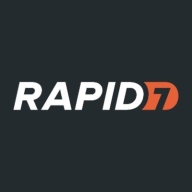

Rapid7 AppSpider and SonarQube Cloud compete in the software security sector, with AppSpider excelling in dynamic application security testing and SonarQube Cloud known for static code analysis. Rapid7 AppSpider offers better support, while SonarQube Cloud is favored for its comprehensive feature set and perceived value.
Features: Rapid7 AppSpider is appreciated for its thorough web application scanning, robust integration options with CI/CD pipelines, and effective vulnerability detection. SonarQube Cloud provides in-depth code quality analysis, extensive language support, and automatic feedback for code review.
Room for Improvement: Rapid7 AppSpider could enhance its user interface to be more intuitive, improve response times for scans, and provide more detailed compliance reporting. SonarQube Cloud may benefit from better documentation for integration, reduced false positives, and improvements in handling large-scale deployments.
Ease of Deployment and Customer Service: Rapid7 AppSpider offers a flexible deployment model suitable for various enterprise environments, backed by reliable customer support to assist with deployment challenges. SonarQube Cloud simplifies deployment with its cloud-based model, providing ease of access and maintenance-free operations with seamless integration with version control systems.
Pricing and ROI: Rapid7 AppSpider's setup costs reflect its extensive security features but aim for high ROI by preventing security breaches. SonarQube Cloud provides a more predictable pricing model, focusing on long-term code quality improvements, resulting in steady ROI for companies committed to maintaining code health over time.


SPAs, APIs, mobile—the evolution of application technology is measured in months, not years. Is your web application security testing tool designed to keep up? AppSpider lets you collect all the information needed to test all the apps so that you aren’t left with gaping application risks.
Our dynamic application security testing (DAST) solution crawls to the deepest, darkest corners of even the most modern and complex apps to effectively test for risk and get you the insight you need to remediate faster. With AppSpider on your side (or, rather, all of your sides), you’ll be able to scan all the apps today and always be ready for whatever comes next.
SonarQube Cloud offers static code analysis and application security testing, seamlessly integrating into CI/CD pipelines. It's a vital tool for identifying vulnerabilities and ensuring code quality before deployment.
SonarQube Cloud is widely used for its ability to integrate with tools like GitHub, Jenkins, and Bitbucket, providing critical feedback at the pull request level. It's designed to help organizations maintain clean code by acting as a quality gate. This service supports development methodologies including sprints and Kanban for ongoing vulnerability management. While appreciated for its dashboard and integration capabilities, some users find initial setup challenging and note the need for enhanced documentation. The recent addition of mono reports and microservices support offers deeper insights into security and code quality, though container testing limitations and false positives are noted drawbacks. Manual intervention is sometimes required to address detailed reporting, with external tools being necessary for comprehensive analysis. Notifications for larger teams during serious issues and streamlined integration of new features are also areas of improvement.
What are the key features of SonarQube Cloud?In specific industries, SonarQube Cloud finds application in finance and healthcare where code integrity and security are paramount. It allows teams to identify critical vulnerabilities early and ensures that software development aligns with industry regulations and standards. By continuously analyzing code, it aids organizations in deploying secure and reliable applications, fostering trust and compliance.
We monitor all Static Application Security Testing (SAST) reviews to prevent fraudulent reviews and keep review quality high. We do not post reviews by company employees or direct competitors. We validate each review for authenticity via cross-reference with LinkedIn, and personal follow-up with the reviewer when necessary.